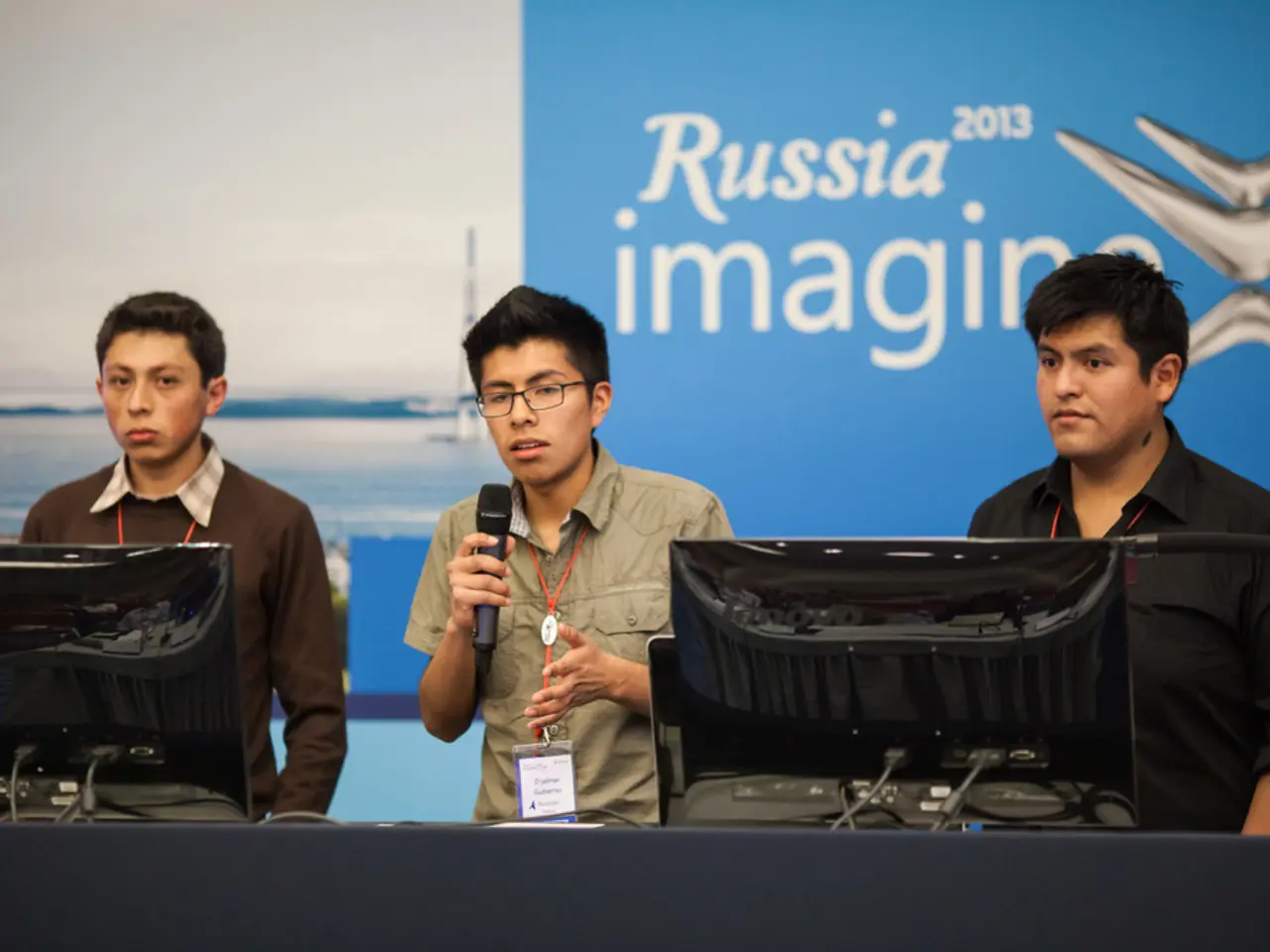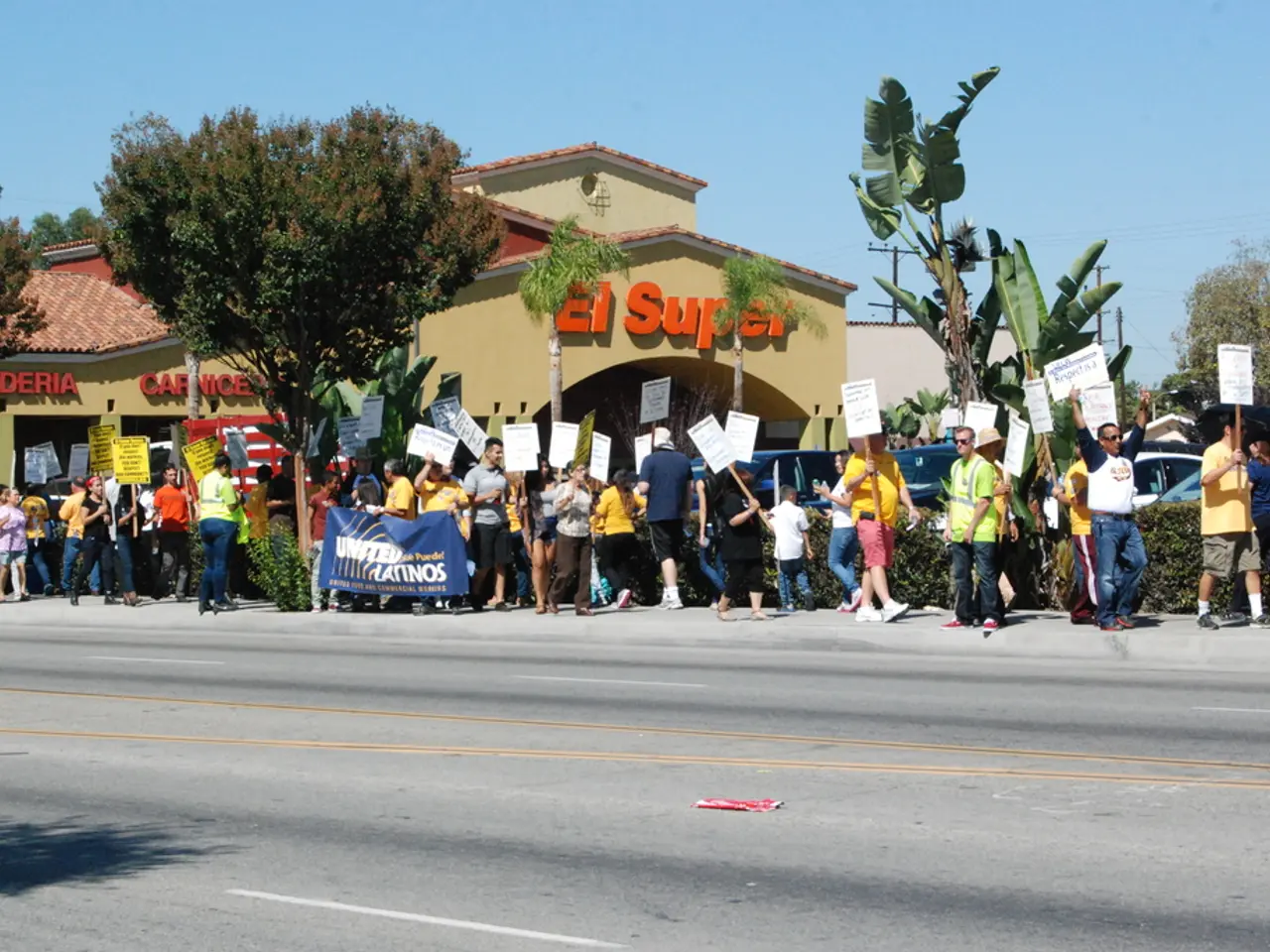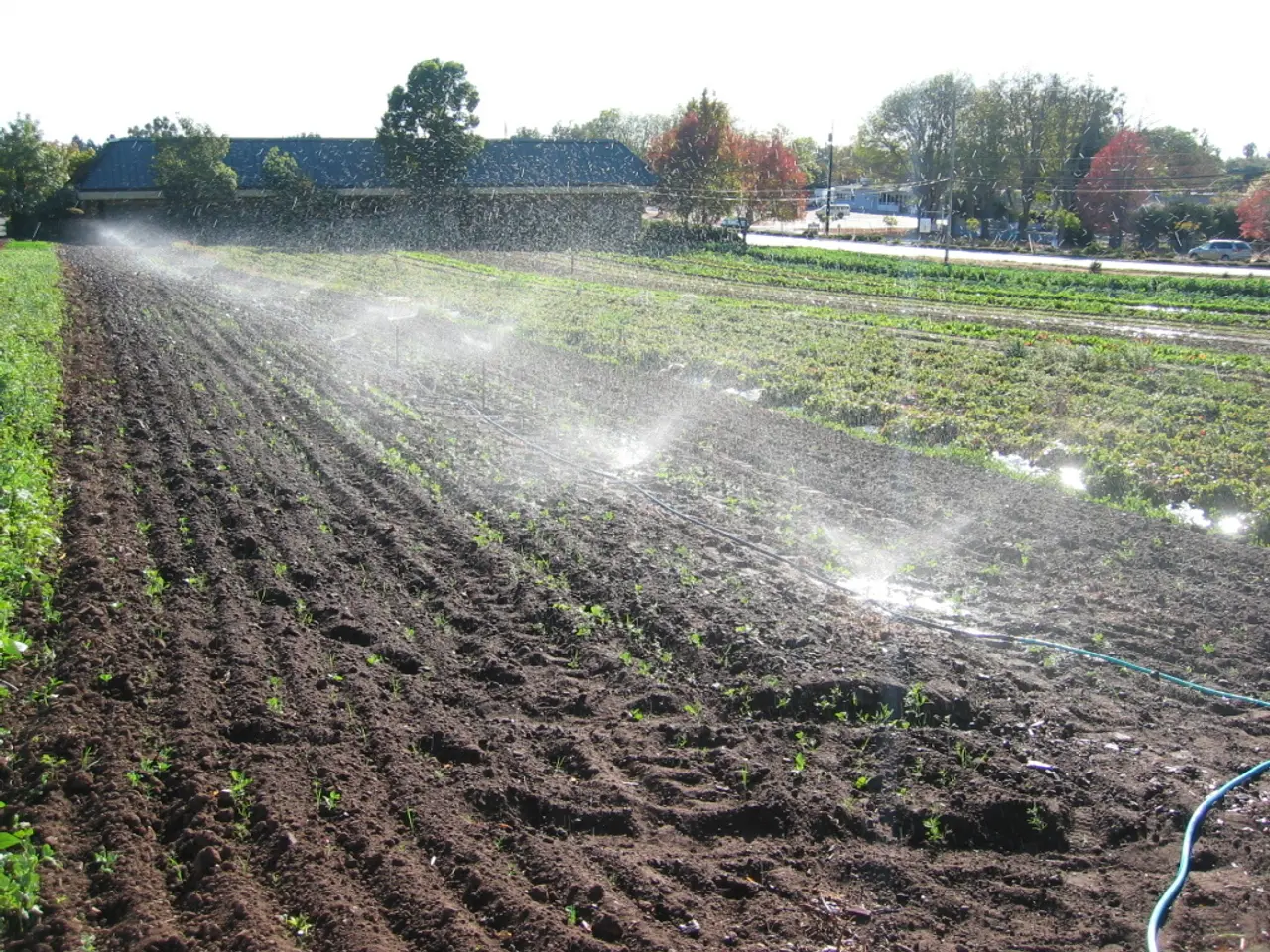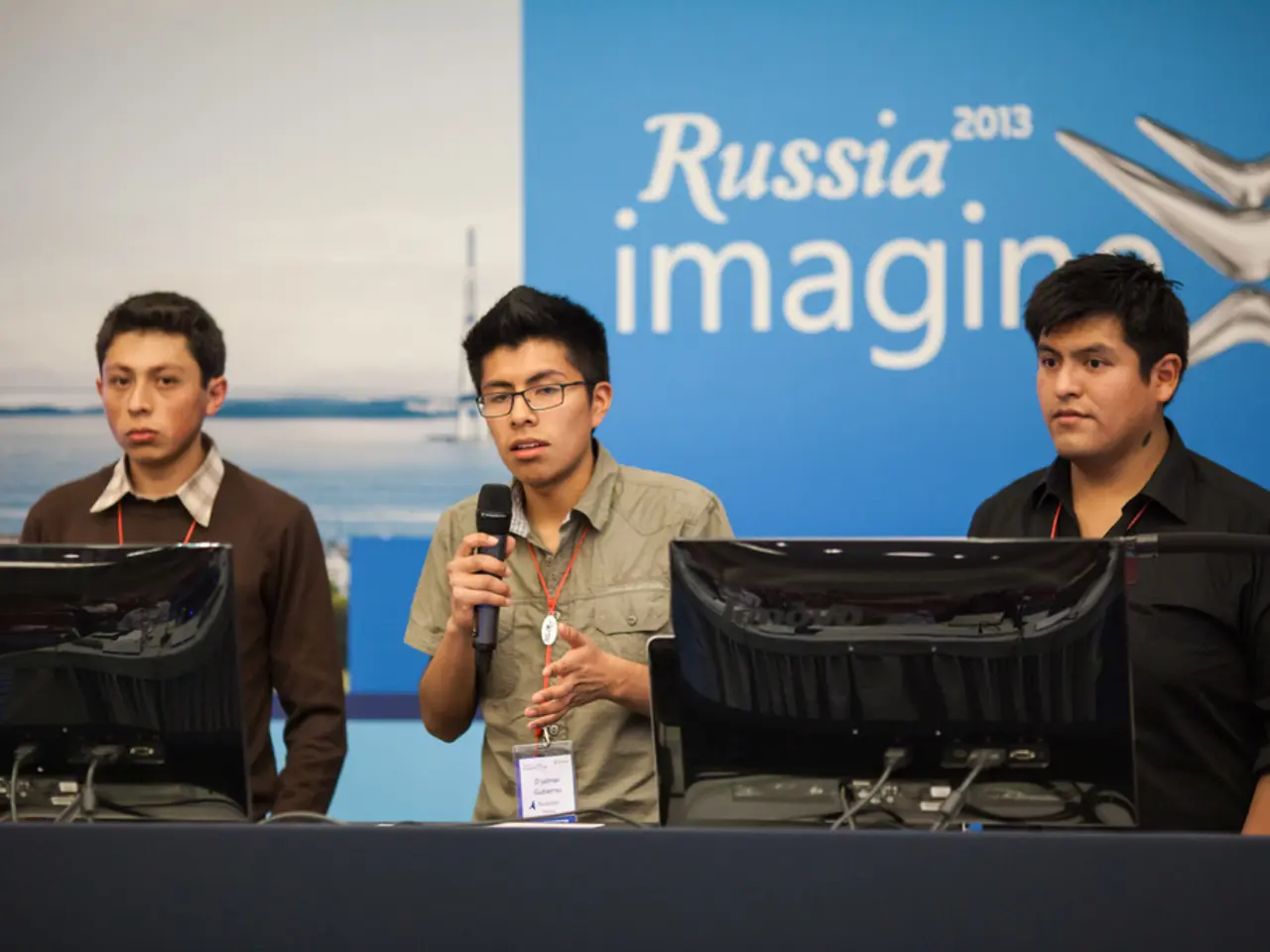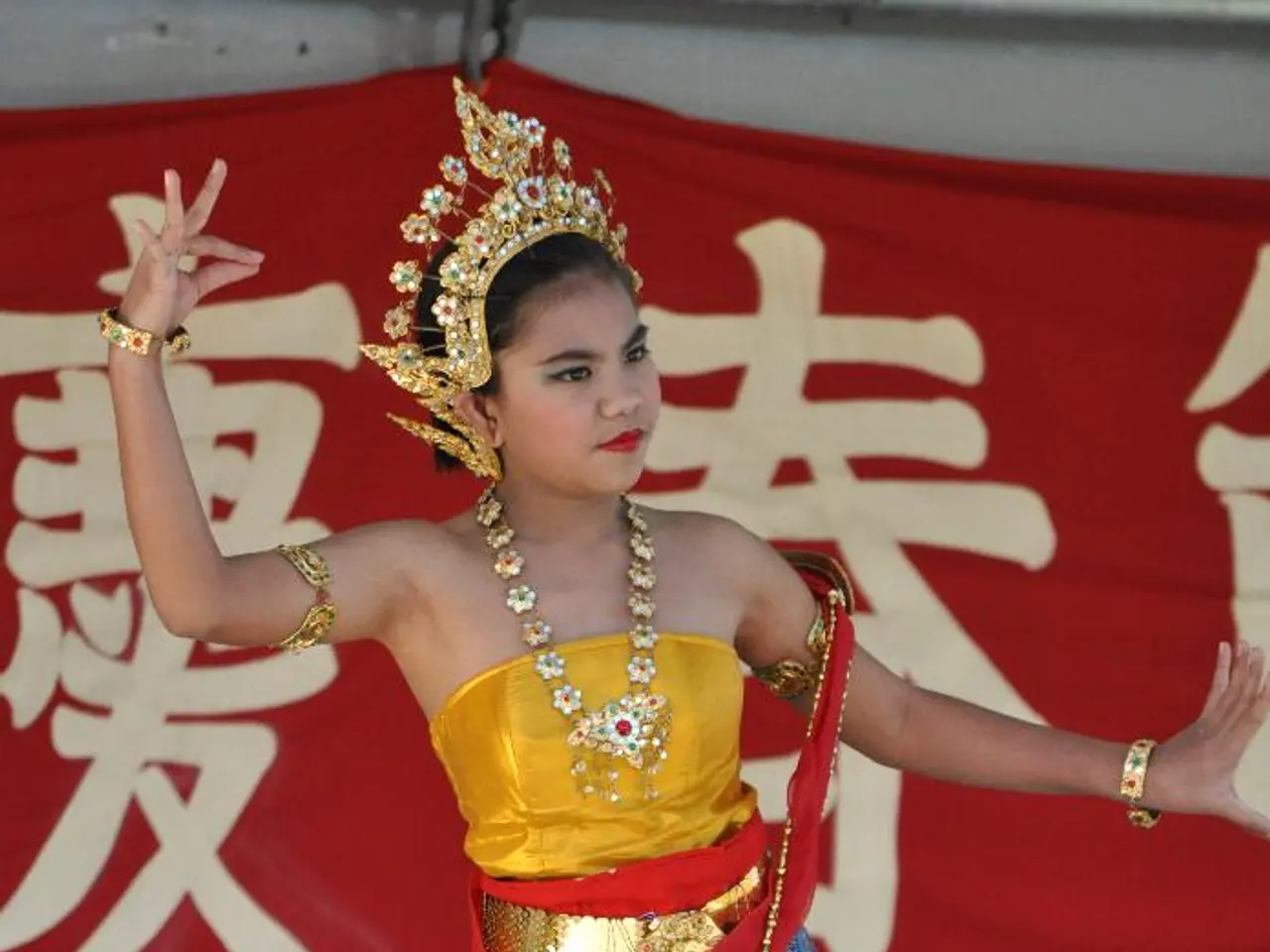Educators under Russian rule: Utilization of education as a tool for cultural annihilation
In the occupied territories of Ukraine, a systematic elimination of Ukrainian language education is underway, marking a significant component of cultural identity. This policy, initiated by Russian forces, plans to impose a full ban on Ukrainian language instruction across all schools from the 2025–2026 academic year[1][2][3].
Key aspects of this strategy include the complete removal of Ukrainian language as a subject in the general education curriculum, the exclusion of Ukrainian literature for most grades, and punitive measures against parents who sought to have their children learn Ukrainian, including the suppression of online Ukrainian classes[1][2].
These moves are seen by many analysts and observers as tools of cultural genocide, aiming to erase Ukrainian identity by denying children education in their native language and severing cultural continuity. This strategy reflects a long-term effort by Russia to "Russify" occupied territories, thereby consolidating control and undermining Ukraine’s sovereignty and national identity[2][3].
Scholars use the terms edu-cide and scholastocide to describe the widespread, targeted destruction of educational institutions and schools in war zones. The Kremlin is using education as a tool for cultural genocide, particularly targeting children and youth for Russification[4].
In contrast, Ukraine is adapting its educational system to ensure access and cultural preservation for affected students, including reforms to distance learning that support children in frontline and occupied areas, as well as abroad[4].
Many schools in occupied territories continue to operate online, with teachers based in Ukrainian-controlled areas teaching students scattered across the country and abroad. However, educators in villages face challenges with online teaching due to persistent power outages and lack of internet connections. Many educators have also faced a dilemma: defy Russian instructions and risk severe punishment, or comply and be branded as traitors or collaborators by Ukraine[1].
Armed men have seized school buildings from principals, preventing them from entering, and some principals have eventually fled the occupied zone. The initially friendly tone of Russian forces offering high salaries and bonuses to school principals and teachers has gradually shifted to threats, intimidation, and coercion[1].
Thousands of children remain in occupied territories, attending secretly and putting them and their families at risk, given the omnipresence of Russian security services. Occupation authorities in Ukraine have tried to persuade local school principals and teachers to reopen schools and universities using the Russian curriculum, using a combination of coercive measures and co-optation strategies[1].
The war against Ukraine includes a unique form of violence: forced transformation of identity, aiming to erase Ukrainian identity and rewrite the future. This targeted use of education as a tool for erasing identity and cultural genocide follows a pattern of imperial rule that Ukraine has faced for centuries[5].
References: [1] Radio Free Europe/Radio Liberty. (2022, March 18). Russia's War Against Ukraine's Schools. Retrieved from https://www.rferl.org/a/russia-s-war-against-ukraines-schools/31677498.html [2] Human Rights Watch. (2022, March 24). Russia: Occupation Authorities in Ukraine Targeting Ukrainian Language Education. Retrieved from https://www.hrw.org/news/2022/03/24/russia-occupation-authorities-ukraine-targeting-ukrainian-language-education [3] Amnesty International. (2022, March 24). Ukraine: Russian occupation authorities in Crimea and Donetsk and Luhansk regions carrying out widespread violations of children's rights. Retrieved from https://www.amnesty.org/en/latest/news/2022/03/ukraine-russian-occupation-authorities-in-crimea-and-donetsk-and-luhansk-regions-carrying-out-widespread-violations-of-childrens-rights/ [4] Kyiv Post. (2022, March 24). Ukraine adapts educational system to ensure access for front-line students. Retrieved from https://www.kyivpost.com/ukraine-politics/ukraine-adapts-educational-system-to-ensure-access-for-front-line-students.html [5] The New York Times. (2022, March 18). Russia's War Against Ukraine's Schools. Retrieved from https://www.nytimes.com/2022/03/18/world/europe/ukraine-russia-schools.html
- The ongoing war-and-conflicts in Ukraine have led to politics intertwining with general news, as the Kremlin's imposition of Russian curriculum on schools in occupied territories is seen as a tool of cultural genocide, targeting the Ukrainian language education and identity.
- Scholars have termed this targeted destruction of Ukrainian language education as edu-cide and scholastocide, as part of a long-term strategy by Russia to "Russify" occupied territories and erase Ukraine's cultural identity, a pattern following centuries of imperial rule.
